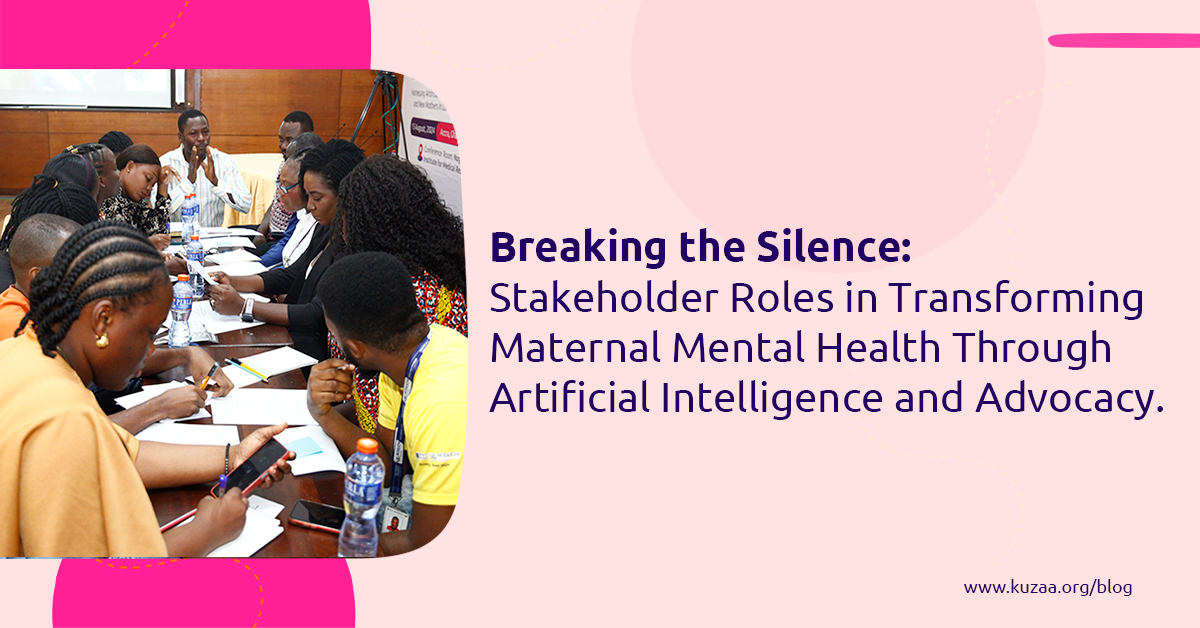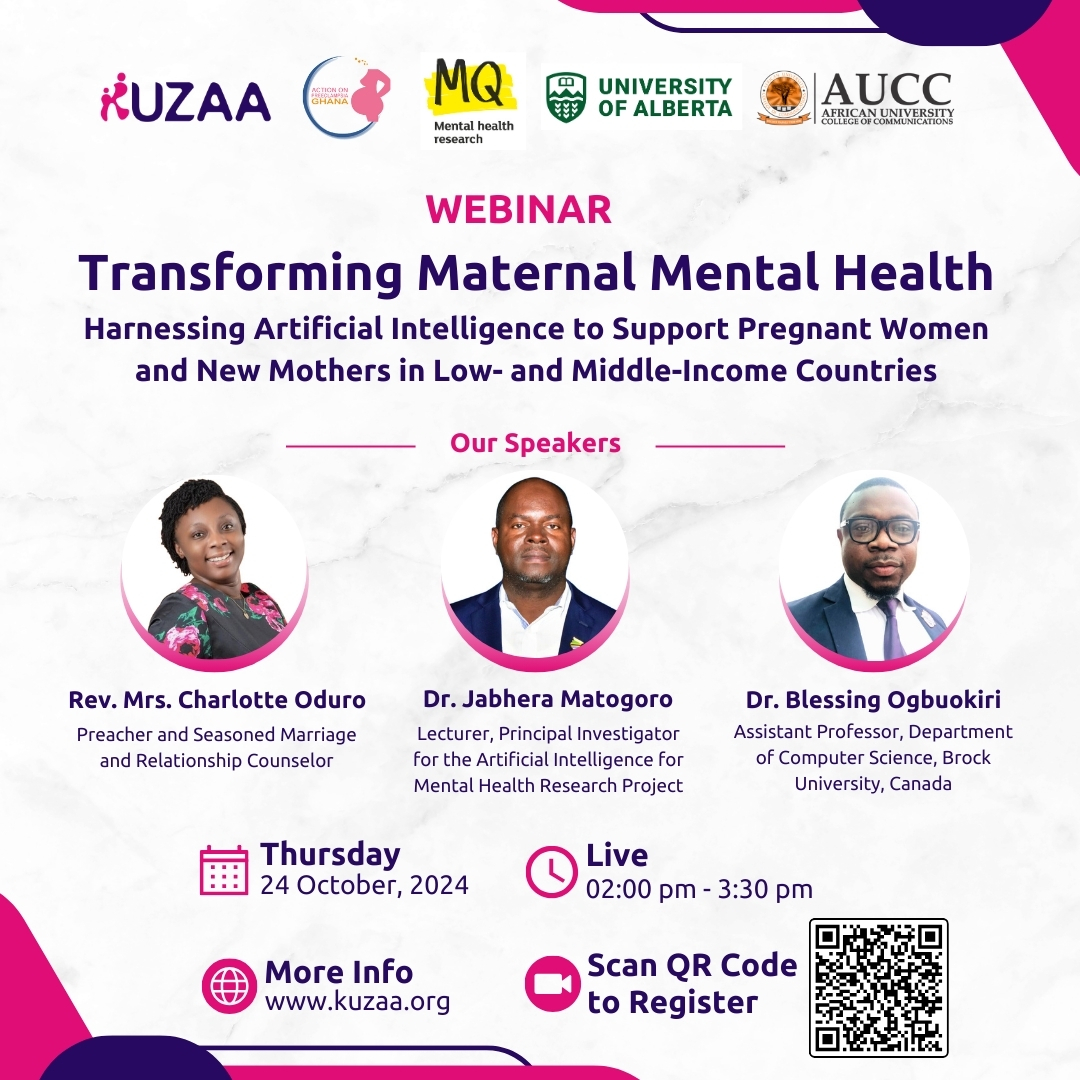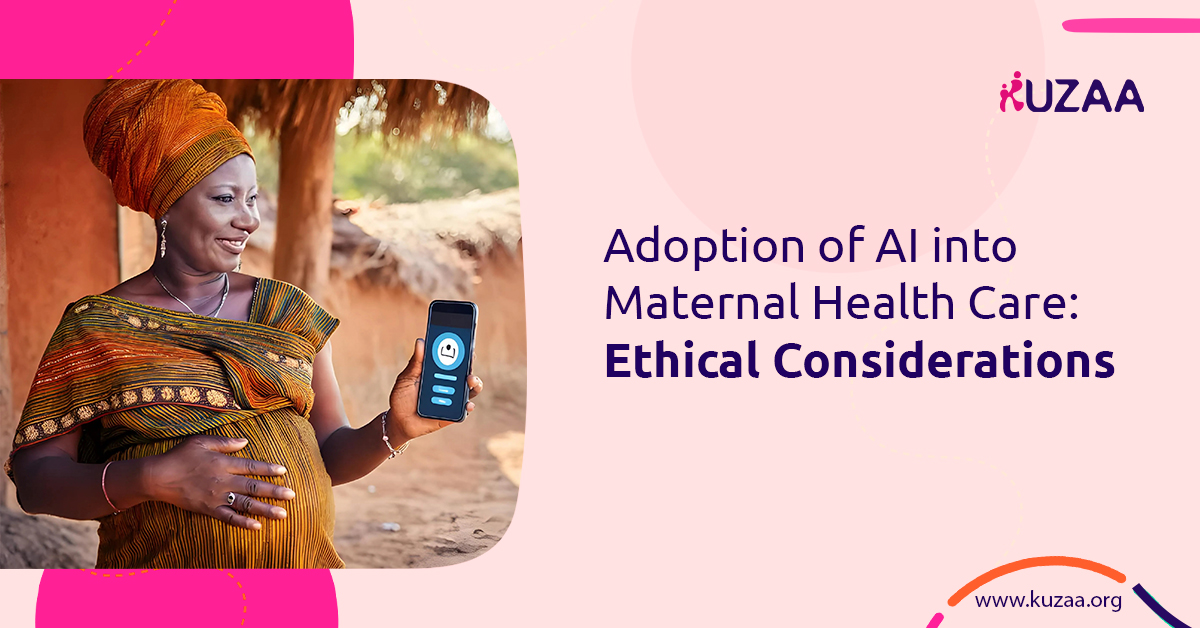The prospect of using artificial intelligence (AI) in maternal mental health care seemed promising to Mama X, a first-time mother, who wrestled with the shadows of perinatal depression and anxiety. During one of her regular visits to the clinic, her doctor’s recommendation to adopt AI, an innovative solution used abroad, in her maternal mental health care treatment journey seemed rather fruitful than she thought. Mama X gradually became conversant with this innovative approach, however, she had certain ethical concerns, which seemed to overwhelm her.

The first question that surfaced in her mind was about privacy and security concerns. She had heard stories about how technology could sometimes expose personal information. The thought of her mental health data being shared or accessed by others without her consent was unsettling. “Who will have access to my name, age, phone number, and health information?”. She wondered if the information she shared with the AI; her moods, thoughts, and experiences, would be kept confidential. She questioned how the AI systems would store her sensitive information. The idea of her private thoughts and struggles being exposed to unauthorized individuals made her hesitant. “What happens to my data after treatment?” She also wondered what would happen to her data after she no longer needed the AI services. Would it be deleted, or would it remain stored indefinitely? The need for more clarity around data retention policies concerned her. She asked herself whether the AI tools her doctor recommended were equipped with strong security measures, especially in her setting where technology infrastructure might be less advanced. She was curious about the broader risks involved in using AI for such a sensitive issue. Could the AI misinterpret her data, leading to incorrect advice or interventions? What safeguards were in place to ensure the AI acted in her best interest? Mama X needed assurance that her personal information would be kept confidential and used solely for her benefit.
Mama X contemplated the importance of informed consent regarding the use of AI in her mental health treatment. She recognized the need to fully comprehend AI’s role, its decision-making capabilities, and how it would interact with her data. Mama X understood that informed consent involved more than a simple yes or no; it required a thorough understanding of the AI system, including data handling, privacy concerns, and its specific application in her treatment. She acknowledged that this knowledge was crucial for making an autonomous and uncoerced decision about incorporating AI into her healthcare Understanding the AI’s operations was essential. She needed to grasp what data the AI would collect and how it would be used.
There was a need to ensure that the AI would not inadvertently cause psychological harm through misdiagnosis or insensitive responses. Mama X wanted to be sure that the technology had been rigorously tested and validated to ensure it was safe and effective, offering real support without adverse effects. The acceptance of AI in maternal mental health care extends beyond Mama X to her family and community. There may be cultural and societal reservations about using technology in such a personal aspect of health. Education and awareness campaigns can help clarify AI, showcasing its benefits and addressing any misconceptions. It is crucial to involve family members in the process, ensuring they understand and support the use of AI in her care.

AI systems can involuntarily perpetuate biases present in data. In a community with different cultural, social, and economic backgrounds, Mama X wondered about the risks that the AI might not cater equitably to everyone’s needs. The AI must be trained with diverse data to ensure it provides fair and unbiased support not only to Mama X but to all mothers who use AI. The idea of using AI for mental health raised eyebrows and questions in her community. Would the community accept this innovation, or would they view it with suspicion? Educational campaigns were necessary to explain the benefits and address any misconceptions, ensuring the community understands that AI is an aid, not a replacement for human care.
There’s a significant disparity in access to technology between high-income countries and low- and middle-income countries (LMICs). Being in an LMIC, Mama X was concerned about challenges she might face such as limited internet connectivity, lack of digital literacy, and the affordability of devices. Any AI system implemented must be accessible and user-friendly, with support provided to bridge any technological gaps.

As Mama X pondered these ethical considerations, the potential of AI remained promising. The prospect of AI offering personalized, constant support was a beacon of hope. With a thoughtful implementation that respected privacy, ensured consent, addressed biases, provided equitable access, maintained trust, and involved the community, AI could revolutionize maternal mental health care in her village. The journey was just beginning, but the first steps were filled with optimism. As Mama X navigated these challenges, the possibility of a brighter, more supported future for herself and other mothers in her community seemed within reach. The promise of AI, though still a distant dream, holds the potential to transform the lives of mothers, offering new hope and healing in even the most remote corners of the world.
Thank you, watch out for the next episode…










